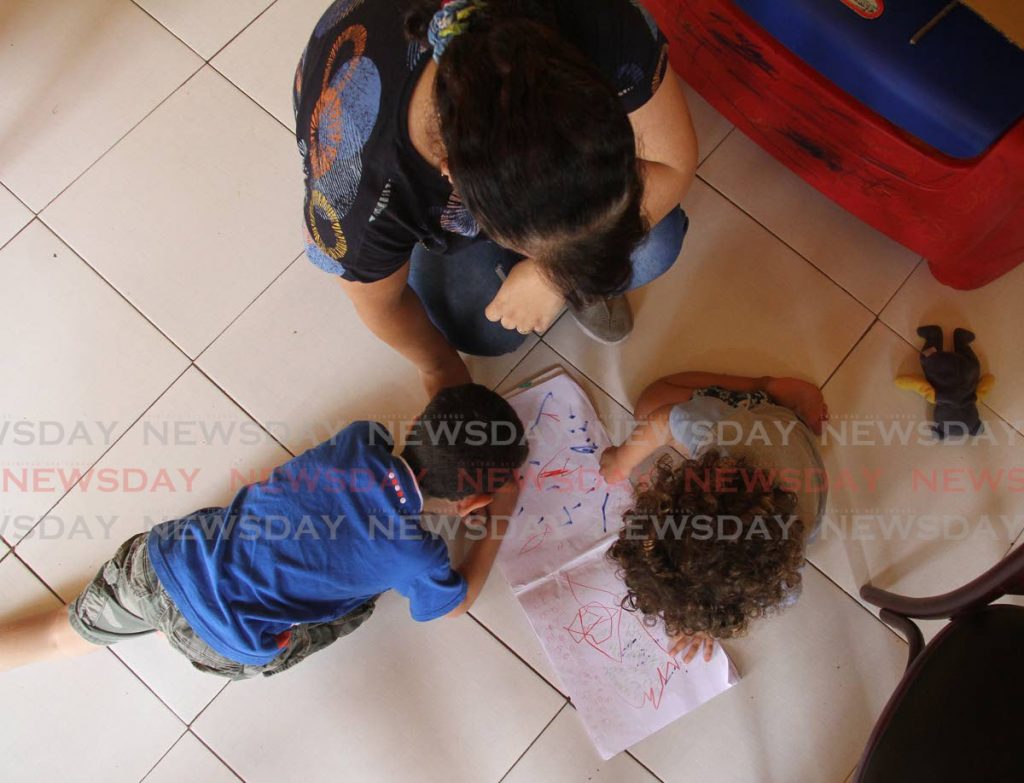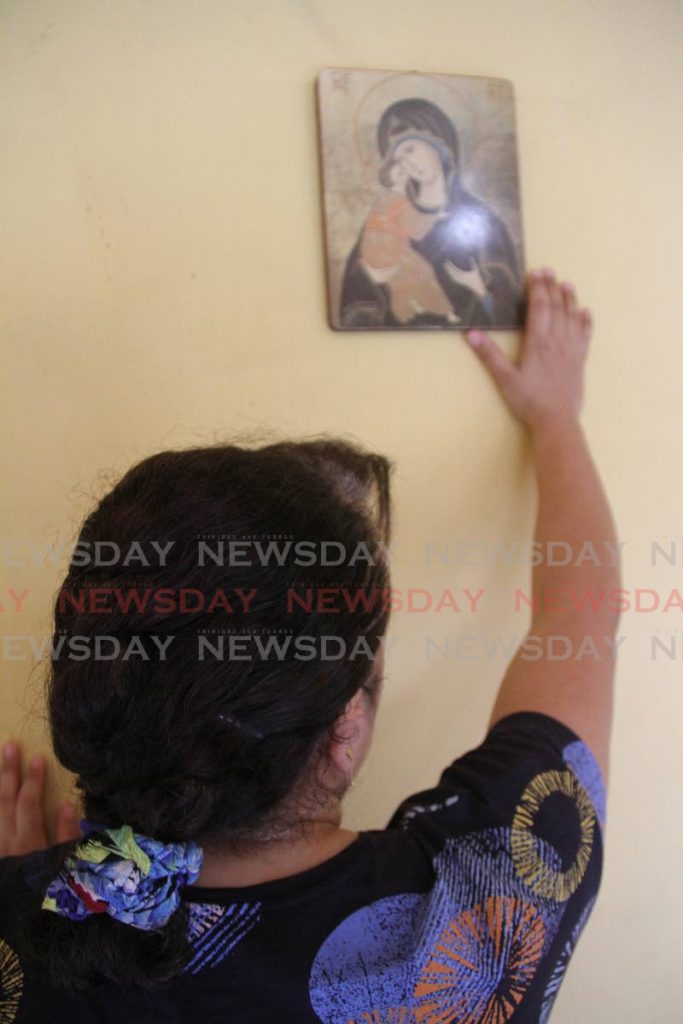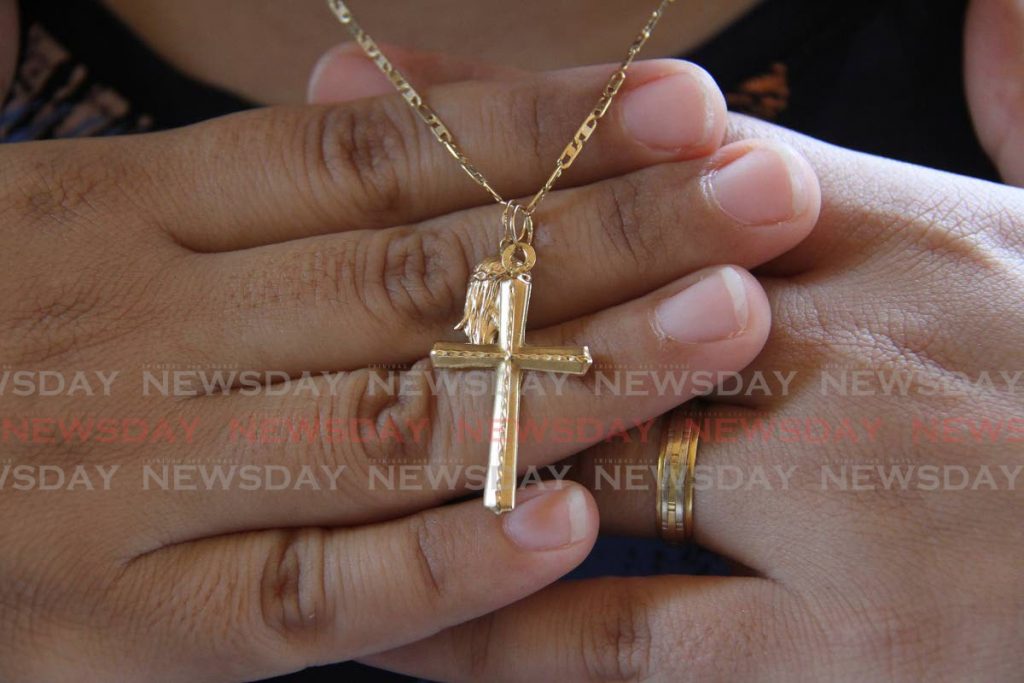The life of a refugee in Trinidad and Tobago

Four years ago Salma (not her real name) and her family left their home and the only life they knew, and travelled for days to seek refugee status in Trinidad and Tobago.
They had been forced to flee Egypt after experiencing religious persecution because they chose to embrace Christianity instead of Islam.
Salma can barely speak English. She communicated to WMN in Arabic with the help of a translator.
She described what she witnessed and experienced in Egypt.
“Churches were burnt…A young couple was burnt alive because they wore symbols of Christianity. Lots of people get kidnapped and brainwashed into converting,” she said.
From Egypt to Dubai to Panama – a journey filled with anxiety and uncertainty – 43-year-old Salma, her husband, and their two children finally arrived in TT.
She is originally from Syria and her husband is from Egypt. Six years ago they met on a Christian social media group. A year later she left her homeland and went to Egypt to marry him.
“He would have had trouble to come to Syria to marry me,” she explained. “So I went to him… But the situation in Egypt was very bad for Christians. There was a lot of prejudice. I tried to go back to Syria but the situation there was worse.”
Salma’s brother, who lives in TT, made arrangements for her family to travel to TT to seek refugee status. They left everything that was familiar to make their temporary home in a foreign land.
They live in a small apartment in south Trinidad and she said she has no intention of ever returning to Syria or Egypt.

“It (the journey) was challenging. We had to switch many airplanes and there were long waits in the airports. We had to give our passports to the captain of each plane when we boarded and got them back when we landed. A Syrian guy we met told us it was because they realised we were Syrian.”
When the family arrived in TT they went to the Living Water Community in Port of Spain and was given documents to fill out. They completed and submitted the documents to the Immigration Division, and did an interview at the United Nations High Commissioner for Refugees (UNHCR).
After some time, “We got accepted (as refugees) and it means a lot. It gives us hope for the future. An improvement from our situation of how it was back there (in Egypt),” Salma said. But she said it is unfortunate that their education has been put on hold.
There are over 20,000 refugees and asylum-seekers currently registered with UNHCR in TT.
But although they are not able to access education through the public school system, they are allowed to be enrolled in private schools. Salma cannot afford to, and is considering the UNHCR’s online learning, Equal Place – an educational platform that helps refugees and migrants try to bridge the educational gap. UNHCR said in April, around 1,050 refugees and asylum-seekers were able to access remote education services through Equal Place.
In the meantime, she said, she tries to home-school her children. “But my English is not that good.”
And the language barrier is affecting more than just her children’s education. For although they now have the right to freedom to worship, they don’t attend church because there aren’t any churches that offer services in Arabic.
“We cannot understand the English language and the churches here are different.”

Refugees are also not allowed to legally work in TT, and she said because her brother is not financially able to take care of her whole family, her husband took a job at a restaurant.
“Because of the lockdown he had to stop. We have lot of bills now. We had to move to a smaller apartment because we couldn’t afford to pay the rent. We have too many debts. We had cash for savings, but all that is gone. We had to get emergency assistance from the UNHCR. It’s been very hard on all sides.”
Sometimes Salma makes Arabian food to sell.
“In Syria I studied for a certificate in civil engineering from a university in Syria. In Egypt I did sewing. Here, cooking is all I can do.”
She said life is in TT is different from the life she left behind, except maybe for the crime and financial hardship that is made worse by the covid19 pandemic.
“Here is a little better than there, but it is still difficult. Cash is hard to come by. We feel no safety at all because of the crime situation.”
Salma is hoping that the UNHCR will be able to help them to resettle in any other country that will give them some more rights, such as education, more than basic health care and the ability to work legally.
“Especially for the kids. They have no fun or out of routine activities at home. It has been very depressing for them.”
What is a refugee?
• A refugee is a person who has fled war, violence, conflict or persecution and has crossed an international border to find safety in another country.
• An asylum seeker is someone who leaves their home country as a political refugee and is seeking asylum in another.
• Illegal immigration refers to the migration of people into a country in violation of the immigration laws of that country, or the continued residence without the legal right to live in that country.
• A person must to be granted legal status as a refugee. Having legal status as a refugee means that a person has been found to meet the refugee definitions (fleeing war, conflict and violence), and once recognsied as a refugee he/she is afforded rights in the 1951 Convention as a refugee, but also has rights they are afforded as a human being in the constitution and international human rights law.
• If an application is rejected on final appeal, the person as well as the Immigration Division is informed. If the person does not have any other legitimate ground to remain in TT they must return home.
• Some countries allow refugees to transition to national status, but this is not possible in TT.


Comments
"The life of a refugee in Trinidad and Tobago"